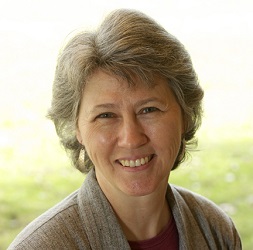Commentary on Romans 4:13-25
Lent is a season in the ecclesiastical calendar created by the church. It traditionally honors the time of Jesus going into the desert, where he was tempted for 40 days and nights. Denominations and congregations have different ways of participating in Lent, but in general, it is a time of reflection—on ways we are tempted away from faithfulness, on our mortality, on the faithfulness of Jesus Christ. It is unlikely that Paul had any familiarity with the temptation of Jesus, and he certainly knew nothing about Lent. But faith and faithfulness are both central to Paul’s understanding of the significance of Jesus Christ, making these verses a helpful part of our Lenten reflection.
The faith of Abraham
In these verses from Romans, it is the faith/faithfulness of Abraham that is in view (see Genesis 15:1–6 and 17:1–27). In Genesis, God twice appears to Abraham and promises that he and Sarah will produce a child of their own making. In 15:5 God tells Abraham that his descendants will be as numerous as the stars. Abraham believes God, and God “reckon[s] it to him as righteousness” (15:6).
A second appearance occurs in Genesis 17. This time, Abraham laughs at God (“Then Abraham fell on his face and laughed, and said to himself, ‘Can a child be born to a man who is a hundred years old? Can Sarah, who is ninety years old, bear a child?’” [17:17]). Nonetheless, Abraham has enough faith in God to circumcise himself, his son by the enslaved woman Hagar, and all his household, including slaves born into the household and those who had been bought with money (17:19–21, 23–27), as a sign of the covenant established by God with him. Sometime later, Isaac is born to Sarah, the fulfillment of God’s promise.
The story of Abraham in Romans
In Paul’s account of these events in Romans, he says that Abraham did not weaken in faith, even when he considered his own body and that of Sarah, which were as good as dead (4:19). Rather, Abraham “grew strong in his faith … being fully convinced that God was able to do what was promised” (4:20–21): namely, to “give life to the dead and call into existence the things that do not exist” (4:17). There is a double entendre in the phrase “give life to the dead.” In the context of the story of Abraham, it refers to the bodies of Abraham and Sarah, which were “as good as dead” (4:19). In the context of the contemporary audience Paul is addressing, it refers also to the resurrection of Christ.
What is critical for Paul is that God’s promise to Abraham is received and believed by Abraham before he is circumcised (4:10–11, 13). Faith precedes circumcision. Circumcision is a response made in faith and, arguably, the first of God’s commandments that we associate with the “law.” This, and the laws that emerge as a way of honoring the covenant relationship with God, are a response through which the descendants of Abraham demonstrate faithfulness. This is, in effect, what Paul means in 4:15 when he says that “the law brings wrath,” meaning the law helps us to discern the difference between right and wrong (2:13–25).
Joint heirs of Abraham
What makes this a matter of such import to Paul is the question of the Gentiles. Paul, a Pharisaic Jew, believed he had been called by God to proclaim Christ crucified to the uncircumcised (Galatians 1:11–24):
For I am not ashamed of the gospel; it is the power of God for salvation to everyone who has faith, to the Jew [the circumcised] first and also to the Greek [the uncircumcised]. For in it the righteousness of God is revealed through faith for faith; as it is written, “The one who is righteous will live by faith [Habakkuk 2:4].” (Romans 1:16–17; see also 3:29.)
When the uncircumcised began to move into the neighborhood of the early church, a question arose: Was it necessary for the uncircumcised to be circumcised in order to be heirs to God’s promises? (see Acts 15:1–35). Paul and James, along with the council in Jerusalem, reject circumcision for the Gentiles. It is Paul who offers a theological grounding for this conundrum (in Acts 10 and 15, the matter is resolved by the Spirit).
The answer, according to Paul, is that they become heirs through faith (4:23–25). For Abraham, says Paul, is the father of all of us (4:16–17): circumcised and uncircumcised alike. And what both inherit from Abraham is the faith—absolute trust in God—that Abraham demonstrated prior to being circumcised. It is this faith that God “reckoned … as righteousness.”
The word “reckon” comes from accounting and means “to credit”: an act by which one account is decreased and another increased. To reckon faith as righteousness means that God draws from God’s own self to credit us with an uprightness that, on our own, we do not possess. It is an act of grace that gives us room to try again, to be strengthened in faith, like Abraham (4:20), so that we may live fuller lives of faithfulness.
For Paul and for those of us today who identify as Christians, faith and faithfulness come together in Jesus Christ, who embodies God’s faithfulness toward us even as we stray from God, and who perfects our faith through the Spirit and the power of Christ raised from the dead.
The faith of Abraham and Lent
When Jesus goes into the desert, he is tempted three times to use his power for his own benefit. Lent offers us an opportunity to reflect on ways we turn the idea of faith into something self-serving. The inheritance we receive from Abraham, perfected in Christ, might lead us to questions about inclusion and exclusion. Or to consider ways we turn faith into a form of self-protection or self-aggrandizement rather than service. Or to learn from the faiths that share our ancestor Abraham about their understanding of grace.



February 25, 2024